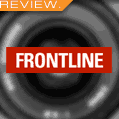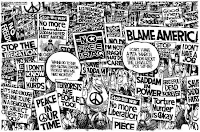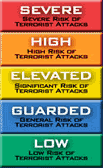 You can only watch so many cable documentaries about aliens and ghosts before you start to question the educational value of their programming. But you can't really blame cable networks. They have to cater their programming to the lowest common denominator to earn their pittance of the Nielsen's ratings. And among their dreary prime time programming, a few kernels of quality intelligent programs do sometimes surface. More often than not, however, I'm simply too tired, and my time too precious, to wait for it.
You can only watch so many cable documentaries about aliens and ghosts before you start to question the educational value of their programming. But you can't really blame cable networks. They have to cater their programming to the lowest common denominator to earn their pittance of the Nielsen's ratings. And among their dreary prime time programming, a few kernels of quality intelligent programs do sometimes surface. More often than not, however, I'm simply too tired, and my time too precious, to wait for it.It's at times like these that we turn back to PBS, that much debated and oft-threatened bastion of British comedies, Yanni musical spectaculars, Dr. Who marathons and, of course, quality documentaries. Premier among them, the least biased and most consistently well produced, directed, and executed series on public television: Frontline.
Since 1983, Frontline has been PBS's flagship public affairs series. Television's "the last best hope for broadcast documentaries," Frontline has survived two decades in which television programming has become further commoditized and homogenized. Frontline programs ask uncomfortable questions, chronicle difficult and controversial subjects, and weekly probe the human experience better than any program on television today.
This year Frontline celebrates its twentieth anniversary on the air. As something of a birthday gift to us all, thirteen episodes of the award -winning series are available online, in full. Among these are some of the show's most recent and most celebrated documentaries. Among these, two episodes which best exemplify the depth of the show's coverage and style.
 "A Class Divided", a classic Frontline documentary originally aired in 1984 and among the series' most praised titles, is a terrifying case study in the simple mechanics of human bigotry. "A Class Divided" shows us an Iowa schoolteacher who, the day after Martin Luther King, Jr. was murdered in 1968, gave her third-grade students first-hand experience in the meaning of discrimination – turning the children against each other based only on the color of their eyes. The episode follows up with the children as grown-ups, in 1984, and demonstrates a similar manipulation of adult Iowa corrections officers at a day-long seminar.
"A Class Divided", a classic Frontline documentary originally aired in 1984 and among the series' most praised titles, is a terrifying case study in the simple mechanics of human bigotry. "A Class Divided" shows us an Iowa schoolteacher who, the day after Martin Luther King, Jr. was murdered in 1968, gave her third-grade students first-hand experience in the meaning of discrimination – turning the children against each other based only on the color of their eyes. The episode follows up with the children as grown-ups, in 1984, and demonstrates a similar manipulation of adult Iowa corrections officers at a day-long seminar. "The Man Who Knew" is the tragic and frustrating story of John O'Neill, the FBI's leading expert on Al Qaeda. In the years preceding the 9/11 attacks, O'Neill repeatedly warned the FBI of the terrorist originization's reach and intent. Ostracized and disregarded by an FBI more concerned with job security than national security, O'Neill left the FBI in the summer of 2001. In September, he took a new job and died as head of security at the World Trade Center.
"The Man Who Knew" is the tragic and frustrating story of John O'Neill, the FBI's leading expert on Al Qaeda. In the years preceding the 9/11 attacks, O'Neill repeatedly warned the FBI of the terrorist originization's reach and intent. Ostracized and disregarded by an FBI more concerned with job security than national security, O'Neill left the FBI in the summer of 2001. In September, he took a new job and died as head of security at the World Trade Center.The best documentary series on TV is now online. Check out some of the thirteen shows available for online viewing, among them "China in the Red", a two-hour look at the civilian level-effects of China's aggressive economic restructuring, "The Merchants of Cool", a look at the tricky game of marketing to teenagers, and "American Porn", a disturbing look into America's thriving pornography industry.
You might just learn something. fb


